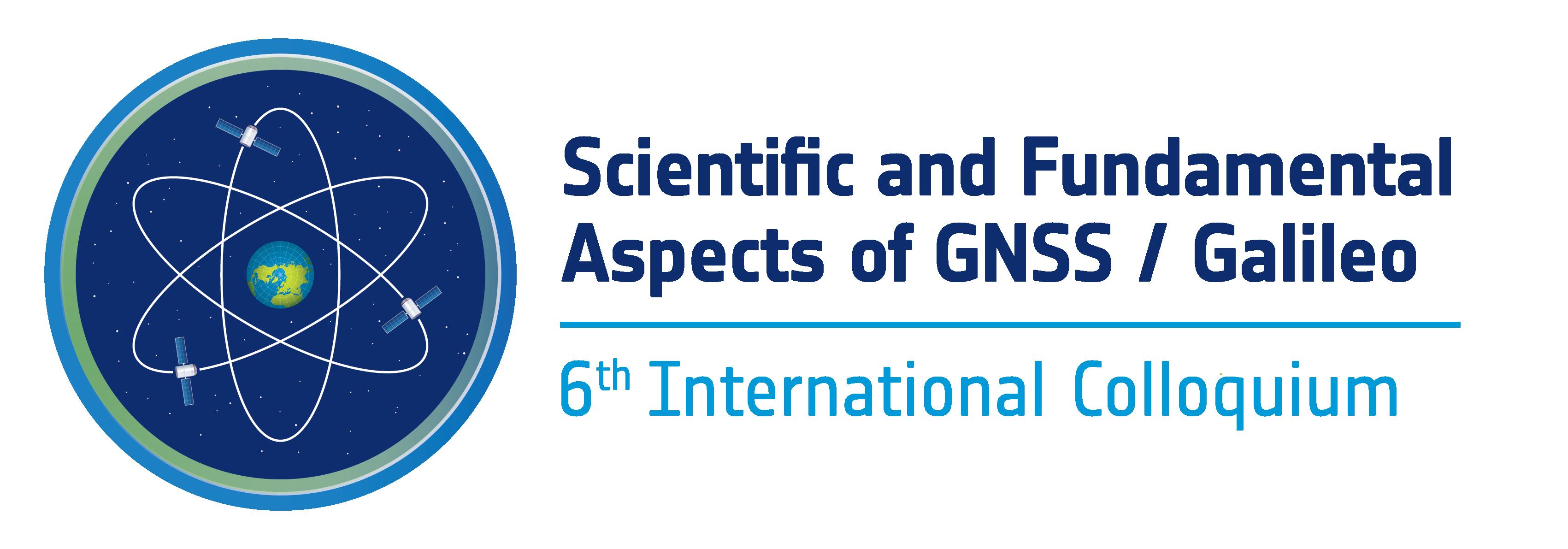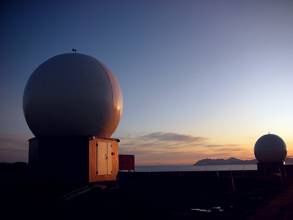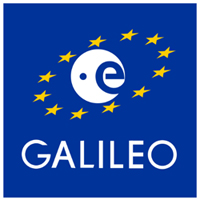At the lavish European Satellite Navigation Competition Awards Ceremony, we caught up with Carlo des Dorides, general director of the European GNSS Agency (GSA), who updated us on the status of the much-anticipated Galileo Commercial Service (CS).
“On the CS, we are dialoging extensively with EU member states, because there is a more and more consolidated view that there could be an advantage to providing the service for free,” des Dorides said.
At the lavish European Satellite Navigation Competition Awards Ceremony, we caught up with Carlo des Dorides, general director of the European GNSS Agency (GSA), who updated us on the status of the much-anticipated Galileo Commercial Service (CS).
“On the CS, we are dialoging extensively with EU member states, because there is a more and more consolidated view that there could be an advantage to providing the service for free,” des Dorides said.
For those who don’t know, the CS, from its conception and now for many years, has always been described and planned for as a fee-based, revenue-generating service. Indeed, the revenues to be generated by the CS have been described as offsetting to a measurable degree to the overall investment in the Galileo system.
Explaining the reasons for the shift, des Dorides said, “First and easiest, we believe that the induced value of providing the service for free will be far higher than if we provide it on a paying basis. If we go back to studies that were performed about two years ago, and then we continue to look over the past two years, the estimated revenues coming from the use of the Commercial Service have been looking more and more ‘thin’.”
Des Dorides said the GSA and the Commission see location and navigation technologies going in the direction of multi-system, multi-GNSS, which by itself will continue to provide better and better accuracy, ultimately limiting the draw of a fee-based high-accuracy system.
“So, the expected revenues are shrinking,” he said, “while on the other hand there is still the idea that Galileo can be the first mover to provide a high-accuracy service, but as a free service.”
“By high accuracy we mean around 20 centimeters,” des Dorides said, “not the 10 centimeters that you can find offered by various manufacturers in the market — these are different. We are talking about 20 centimeters with a convergence time on the order of five minutes, and you know that that 10 centimeter accuracy I mentioned comes with a 15-minute convergence time, so it’s a different market.”
Thus, he said, an accuracy on the order of 20 centimeters, delivered for free, could represent a competitive advantage for Galileo vis-a-vis the other GNSS systems.
“From the formal point of view,” he added, “there is a regulation [EU Regulation governing Galileo and CS] that clearly states that this is to be a commercial service, so we need to be sure that there is a political consensus among all member states,” because the regulation will have to be modified.
And therein lies the matter. The EU member states, soon to number 27 without the UK, need to go along with this fundamentally new direction for the CS, and we all know by now just how time- and energy-consuming EU wrangling of this sort can be. But des Dorides says he is optimistic: “It is difficult to tell you when this debate will end,” he said, “but I don’t expect it to go for 12 months. I expect in the next two to three months a decision will be made.”
EU Credibility in the Balance?
We also spoke to Philippe Jean, European Commission head of unit for Galileo legal and institutional aspects. He told essentially the same story, with some additional details, from the point of view of the Commission.
“There is a discussion that is taking place for the moment between the Commission and EU member states in order to fix the question of is the Commercial Service going to be free or is it going to be delivered for a fee,” Jean said.
“Since the beginning of the year, we at the Commission have been changing our minds and we think that now we have to go more in the direction of a free service, and we want to convince our member states to change their minds too. It’s an internal discussion, it’s an institutional discussion. But we expect to take a decision quite quickly, in order not to postpone the procurement situation.”
Jean said signs show Galileo’s competitors, in Japan for sure and perhaps in China, are likely to launch their own high-accuracy, CS-like services in the near future, and for free. So not only is it in Galileo’s interest to offer a free service, but also to do it quickly, to be the first to put such a service on the market. “What exactly is the asset if we are not doing it first?” Jean asked rhetorically.
He also cited the estimates mentioned by des Dorides, showing a negligible revenue stream for a fee-based service. “The income would be something like one percent of the actual Galileo budget, and for that we would lose the advantage of being the first to offer a free commercial service?”
That’s not to say that there aren’t voices opposing the move. There has already been significant investment laid out on building a CS based on incoming revenues, particularly among private companies.”I do understand the concerns of member states,” Jean said, “because they have been building a system with companies, and all of a sudden we are changing our minds, after so many years. Perhaps we will need to do some arbitration in order to manage the expectations of the companies that have been working on the system in the last two-three years.”
The pressure is real, Jean said; “What we are discussing is a key parameter, and when you go around, to events like this one in Tallinn, you can see it, you can feel it. There is a high level of expectation that the CS should provide a quality of service that is not offered by the Open Service (OS). So, it’s a problem of credibility. And the fact that there is an Open Service creates the expectation that the Commercial Service is going to come very quickly afterwards.”
“You have been following what we do for a long period of time, so you can guess that we now need to take a decision very quickly.” And yet, he said, the details of what the final product will look like are still not clear. “It’s not going to be with a fee for everything, but it will not be free for everything either, but something in between. I’m not expert in that, but we have understood there is a possibility to make a distinction between what is free and what is fee-based.”
Once the fee-free question and some further details about how authentication will work are sorted out, Jean said, it should be possible to launch a procurement process for the end of 2018. “Right now, no one can say when the system will become available. Of course everybody prefers 2018, but we need to wait and see how this current discussion goes.”
Both Jean and des Dorides described a relatively straightforward process, assuming minimal delay, but we would not be surprised to see that process being drawn out due to various circumstances. If it goes on for too long, the Commission could find itself being beaten to the punch by a Japanese or Chinese CS, and then its credibility will rightly be questioned.
Galileo Perspective
Back with des Dorides, we went over some recent and forthcoming milestones in the ongoing saga that is Galileo.
Standout moments in the past few months have included the announcement last September by Apple that the new iPhone 8 and iPhone X will be Galileo-compatible. “With that, Apple became the last of the big smartphone manufacturers to integrate Galileo,” des Dorides said. “We now have Huawei, Sony, Samsung and Apple, which was our goal from the beginning.”
The Apple announcement was followed quickly by Broadcom’s unveiling of the first mass-market, dual-frequency chip. “And this means we could see a dual-frequency smartphone as soon as next spring,” des Dorides said. “This also allows Galileo to be used at full potential, improving accuracy but also helping in complex environments, in cities, against multi-path effects.”
Here he mentioned the remarkable fact that Galileo is now operating more dual-frequency satellites than GPS. “I believe GPS has 11, if I’m not wrong. So we are truly on the technology edge,” he said.
Another fundamental milestone for Galileo was the successful transition last July from operations on a best-effort basis to the live exploitation phase, handing the GSA full responsibility for operational service provision.
Looking forward, the program will see its next launch on December 12, with four satellites to be lifted into orbit by the awe-inspiring Ariane 5 launcher.
“Then, in a couple of months, we will be awarding a new contract for the ground control segment, another tangible sign that Galileo is moving forward on pace,” des Dorides said. “And finally, in the last quarter of 2018, really the most important milestone for next year, we will announce the new enhanced service.”
This is essentially the next release of Galileo, he said, coming two years after initial services. It will include the OS authentication, and a new release for the ground segment, for the Galileo Security Monitoring Center (GSMC), entailing the distribution of keys for the PRS. There will also be a new SAR feature, the so-called “return link”, which will inform people calling for emergency aid that their call has been received.
A Rather Political Business Roundtable
Among the diverse highlights of EU Space Week in Tallinn was the Satellite Masters Conference, which kicked off with a “business roundtable” featuring some business people and a number of EU institutional representatives.
The word “integration” was repeated a number of times in the first minutes and throughout the session, as were other familiar words and phrases such as “diversity” and “freedom of movement” — words that have lately become more closely associated with political and social discourse in our part of the world.
After several repetitions of these words and phrases by a sequence of speakers, one began to get the impression that these popular buzzwords from the socio-political sphere were being systematically superimposed on the discussion, a discussion purportedly concerned with business.
To be sure, the meaning of these words was slightly shifted to fit the context; here, for example, the words “diversity” and “integration” tended more to refer to bringing in new companies with diverse visions, and integrating different groups in support of innovation, etc. “Freedom of movement” referred more to goods, services and specialized personnel than to just regular people.
And then one remembered that, after all, EU space policy in general, like the Galileo program in particular, are owned by a public body. Indeed we were reminded explicitly by GSA Head of Market Development Gian-Gherardo Calini, who, when asked to talk about the particular strengths of the Galileo program, replied virtually instantaneously, as if without needing to think, “It’s civil.” Galileo, unlike the United States’ GPS, is a civil program, owned and run by the European Commission, not a private one, and especially not a military one.
The language of the EU’s prevailing political and social agenda is written all over the EU space strategy, and it fills the mouths of its representatives. We only wish to point out that not serving a military master does not mean not serving a master. It only means serving a different master.
More Impertinence Inspired by the Roundtable
The program of the Satellite Masters Conference, put together we assume by conference organizers AZO, included a brief introduction, which read, in part, “Despite current tendencies that are threatening to pull Europe apart…” (followed by something about the benefits of staying together).
This somewhat cryptic reference to forces working to destroy Europe was echoed by broadcast journalist and roundtable moderator Louise Houghton, who, in her very brief opening remarks, invited all to consider the significance of 2017 for the European Union, “…at a time when many of the fundamental principles are being challenged”.
In neither case were the sources of imminent menace elaborated upon, and we won’t speculate here as to what they might be. But it might be a good idea for someone to look into this.
Less Political, Still Eyebrow-Raising
Dinka Dinkova, European Commission deputy head of unit for space data for societal challenges and growth, told the audience at the business roundtable, “Europe is the best place in the world to start a business.”
That’s a claim that might have been disputed by Rainer Sternfeld, founder of Planet OS, had he chosen to speak up at that moment. Instead, he waited until he was asked a separate question, to which he answered, “Europe is a big market and very quality-oriented, but it’s not always the best for young companies.”
Sternfeld is, by the way, a European, who went off to America to start an extremely successful high-tech company. We spoke to him after the roundtable and asked him to elaborate. “If you want to be a good chef you have to go to France,” he said. “There’s this place Silicon Valley and you just have to go there. We went there because of the market and the investors and the understanding of how to build these kinds of new-value businesses. And I wanted to push myself, you know, to the edge.”
Sternfeld volunteered more, saying, “If you really want to look critically at Europe, then, depending on your business, sometimes it’s like, OK you have 500 million people in Europe but it’s so distributed across these different countries and it’s not easy to trade because every country will very often have its own rules, even if you have free trade and now the European Union has a single market. In the U.S. you have one big market, so just knock yourself out.
“One example,” he continued, “you can ship wine very easily from one country to another all over Europe, but with digital it’s a little different. Say if you want to buy a song on iTunes, then in the U.S. I can be wherever I want, but Europe has put a system in place that basically forbids the free movement of such services. That’s a simple example, and in satellite data or data in general there are similar things.”
So, Europe still has a way to go when it comes to removing these types of borders.
Nägemist Tallinn
We leave Estonia with a positive message from des Dorides: “We are coming very soon now to the start of the debate on the space budget. It will not be an easy debate, first of all because of Brexit. But I feel that space has a favorable future. I sense the EU does believe in space and the forthcoming budget will be consistent with this.”
Galileo is delivering the expected results, he said. The program’s mid-term review was positive, and the other EU space initiatives are also viewed favorably. The days of the doubters seem well and truly gone.
The ESA budget, des Dorides pointed out, has remained relatively stable in recent years, while the EU has grown its space budget significantly. “We are in a position to be positive about space in Europe,” he concluded. And, all things considered, yes, so are we, until next time.






